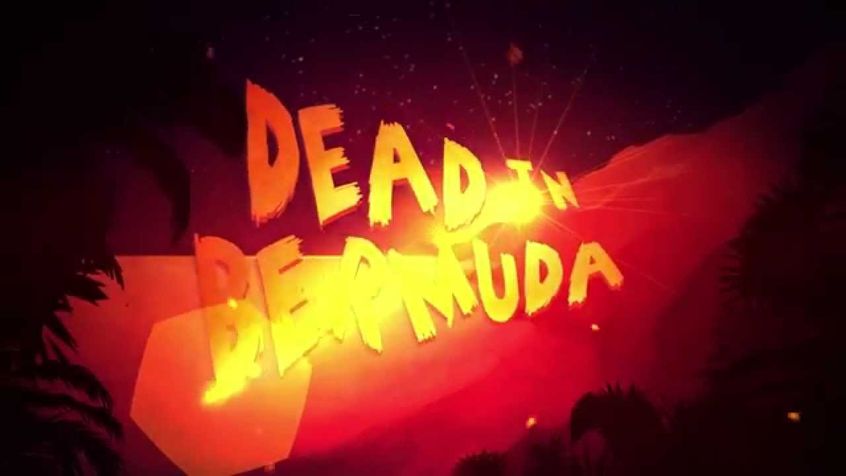Dead In Bermuda
It’s an interesting quirk. Though I should enjoy them, survival crafting games have consistently been one of my least favourite genres to play. There’s something about scouring for resources and needing to craft that just doesn’t do it for me for reasons I don’t really understand. The true irony of this, though, is that, while I dislike survival crafting games, I adore survival management. Rimworld is one of my favourite games, and Alone (not that one ) remains one of my favourite games that I’ve reviewed in this series. There’s a complex simplicity to them, where the goal is obvious and understandable, but the path to get there is opaque.
There is, however, a range within survival games and how they choose to manifest this struggle for survival. Some are straightforward and clear (like, once again, the aforementioned Alone). Others (like Rimworld) have mechanics that, on the surface, seem complex, but become intuitive as you pour time into learning them.
Dead in Bermuda is that third category, where complex background mechanics remain obscured, thus lending an almost artificial difficulty to what is already the difficult task of survival.
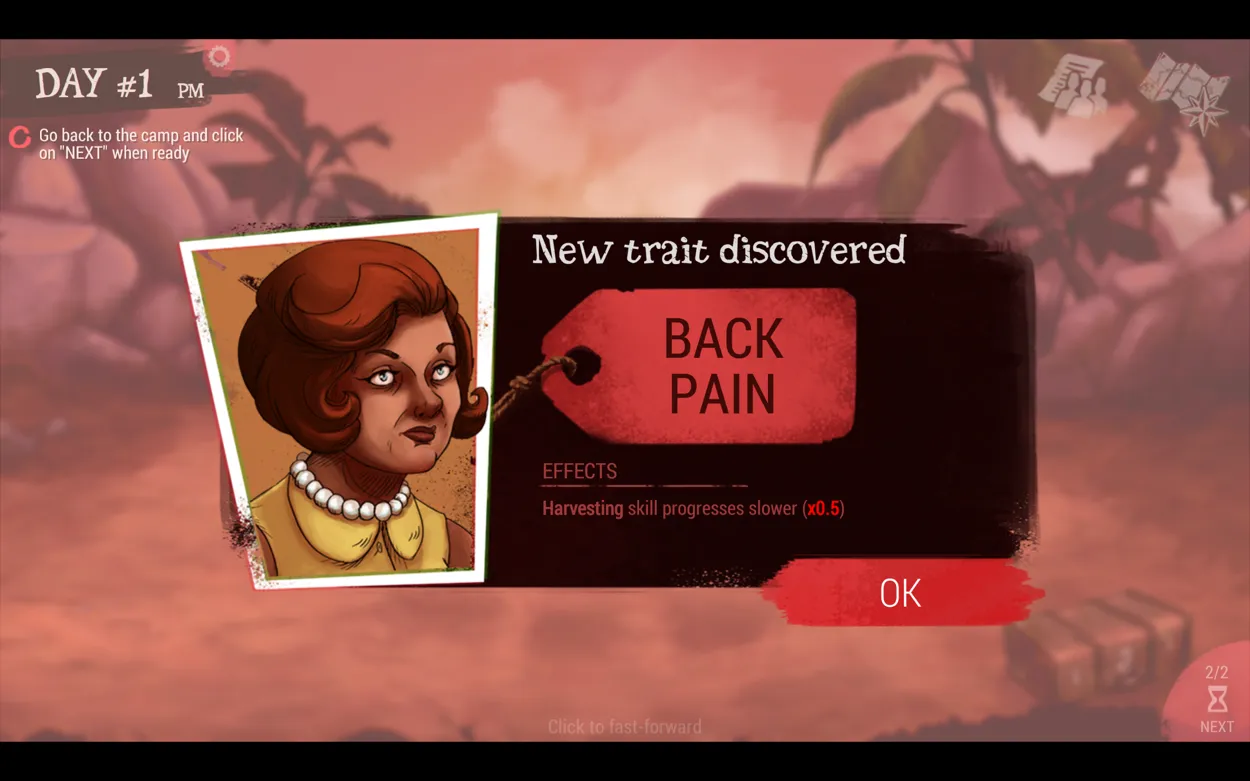 Welcome to your 30s, where your body becomes a hazard in a survival game.
Welcome to your 30s, where your body becomes a hazard in a survival game.
Dead in Bermuda is a survival management game. The game follows a group of eight plane crash survivors as they struggle to survive on a remote tropical island. As time wears on, the survivors learn about each other, make friends (or enemies), and reveal their stories of why they were on the plane in the first place, and what their motivations truly are. It’s the video game version of the more melodramatic elements of Lost, basically.
However, it’s not the plot I find most interesting about this game, though the island itself is sufficiently bizarre to remain interesting throughout. What I find most interesting about Dead in Bermuda is its mechanics and how it tries to make the struggle for survival itself more realistic.
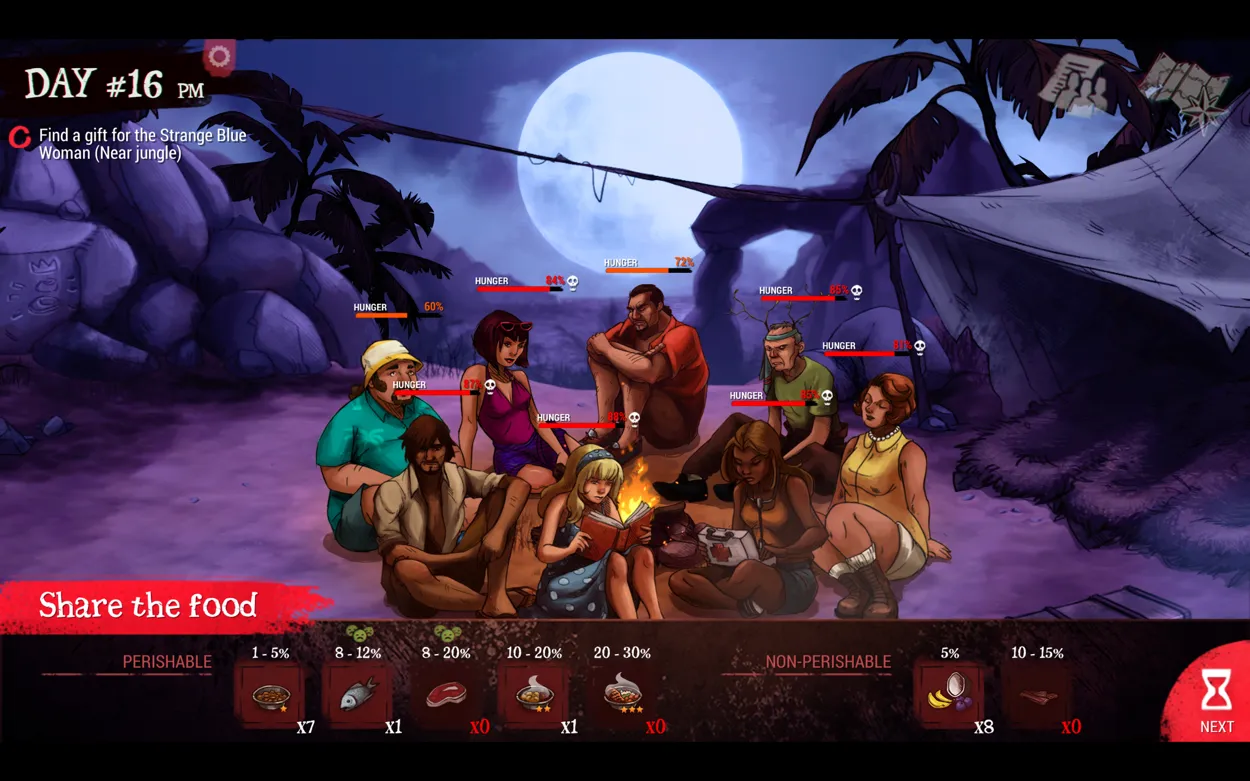 It’s going great.
It’s going great.
There are two survival elements within Dead in Bermuda that interplay with one another, but are worth talking about separately. There is the individual survival and how any given person does, and there is the group’s survival. Individuals have various metres - hunger, depression, fatigue, and illness/injury - which must be maintained. There is also a collective water supply, which must be maintained, though the survivors don’t themselves have a thirst metre. The level of each character’s metres determines their ability to function, with the fill rate of the metre increasing the more full it gets. This means that, the hungrier someone is, the less well they function, and the faster they starve. Mechanically, this creates a vicious feedback loop, where the more vital action becomes for survival, the more difficult it actually is. It’s a nice way to reflect the reality of survival, even if it does make the game significantly more difficult.
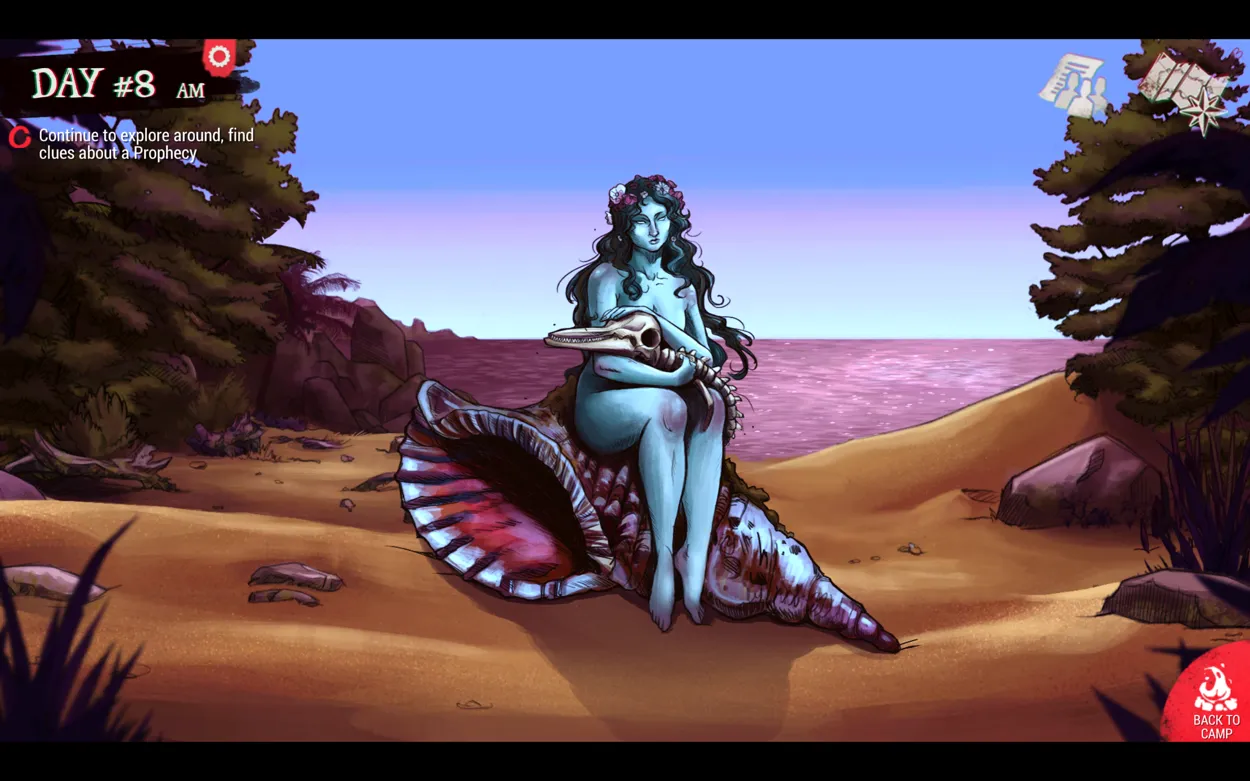 She seems nice.
She seems nice.
This vicious loop style of survival becomes even more dramatic when paired with the mechanics of group survival. The survivors have a variety of activities they can undertake, from scavenging to researching to exploring, with their performance in each being determined by their condition, and by the condition of the station at which they’re working. The more a station gets used, the more it decays, leading it to be less and less effective. This can be fixed with wood. Wood, however, rapidly becomes a rare commodity. Between needing to be used to fuel the fire, craft stations, cook food, and repair, I often found myself trying to decide whether to invest what little wood I had in food or harvesting. My survivors started to starve, less because of a lack of fish, but because I had no wood with which to cook it.
Meanwhile, they were surrounded by jungle. Sometimes, I got the impression they were not the brightest.
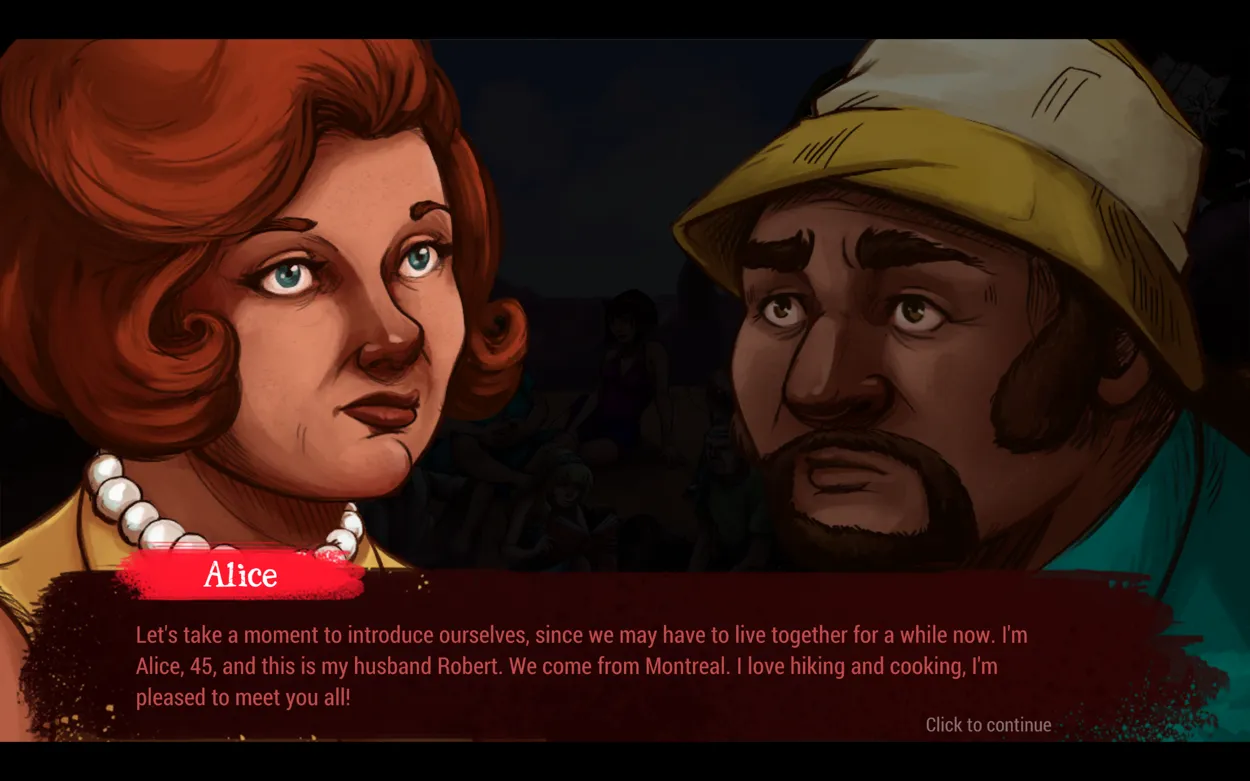 If I told you she was the single most effective explorer I had, would you believe me?
If I told you she was the single most effective explorer I had, would you believe me?
These mechanics aren’t necessarily a bad thing. They add a realism to the game that I wasn’t expecting, and which made it more interesting to engage with and puzzle through. On my first attempt, my group died after a little over a week. My second attempt went better, though the group still didn’t manage to escape. It’s entirely possible a third attempt would get them off the island as I start picking at the edges of this puzzle.
What I find particularly interesting, though, is how this game is made better by its difficulty. Throughout, I was reminded of As Far As The Eye , another survival management game with deceptively soothing music. In both games, the difficulty itself contributes to why the game is so compelling. I don’t particularly care about Alice or Julia’s backstories or what they’re doing on this island. What I care about is finally outwitting the game and figuring out how to beat it. I approach it less as a survival game, and more as a puzzle, and every puzzle eventually has a key.
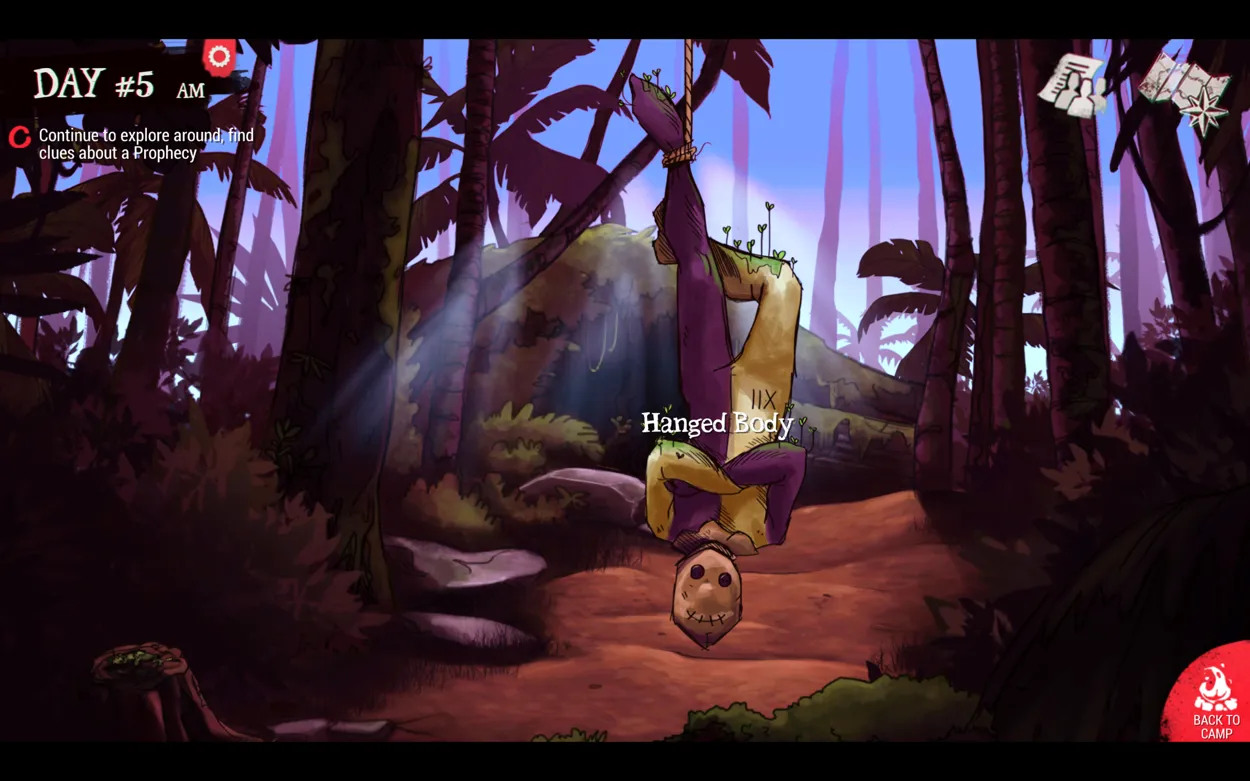 This is fine.
This is fine.
Dead in Bermuda is an odd example of a survival management game. It invests enough in the plot and setting to keep the player curious and interested, but these are ultimately not what make the game compelling. What makes it compelling is how difficult it is to actually succeed, and sharing in the survivors’ determination to beat the odds. I wanted to win just to prove to the game that I could, and so I tried and tried again.
Perhaps next time I’ll make it. I’ll have to play again and see.
Developer: Ishtar Games
Genre: Adventure, Management, Survival
Year: 2015
Country: France
Language: English
Play Time: 15-20 Hours
Youtube: https://youtu.be/5sfbpf3Vgvw
